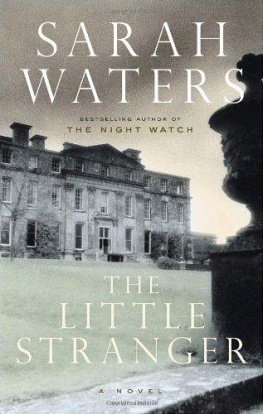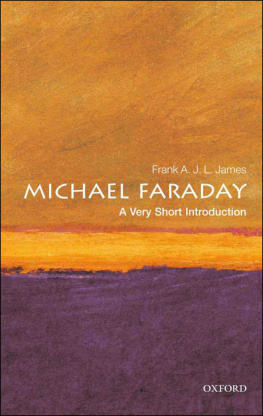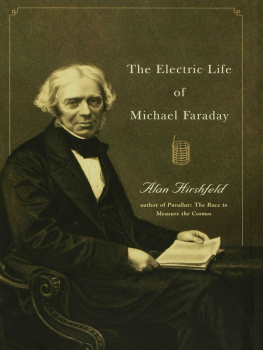Table of Contents
ALSO BY SARAH WATERS
Tipping the Velvet
Affinity
Fingersmith
The Night Watch
RIVERHEAD BOOKS
Published by the Penguin Group
Penguin Group (USA) Inc., 375 Hudson Street, New York, New York 10014, USA
Penguin Group (Canada), 90 Eglinton Avenue East, Suite 700, Toronto, Ontario M4P 2Y3,
Canada (a division of Pearson Canada Inc.) Penguin Books Ltd, 80 Strand, London
WC2R 0RL, England Penguin Ireland, 25 St Stephens Green, Dublin 2, Ireland (a division of
Penguin Books Ltd) Penguin Group (Australia), 250 Camberwell Road, Camberwell,
Victoria 3124, Australia (a division of Pearson Australia Group Pty Ltd) Penguin Books
India Pvt Ltd, 11 Community Centre, Panchsheel Park, New Delhi-110 017, India Penguin
Group (NZ), 67 Apollo Drive, Rosedale, North Shore 0632, New Zealand (a division of Pearson
New Zealand Ltd) Penguin Books (South Africa) (Pty) Ltd, 24 Sturdee Avenue, Rosebank,
Johannesburg 2196, South Africa
Penguin Books Ltd, Registered Offices:
80 Strand, London WC2R 0RL, England
Copyright 2009 by Sarah Waters
All rights reserved. No part of this book may be reproduced, scanned, or distributed
in any printed or electronic form without permission. Please do not participate in or
encourage piracy of copyrighted materials in violation of the authors rights.
Purchase only authorized editions.
eISBN : 978-1-101-05254-9
This is a work of fiction. Names, characters, places, and incidents either are the product of the authors imagination or are used fictitiously, and any resemblance to actual persons, living or dead, businesses, companies, events, or locales is entirely coincidental.
While the author has made every effort to provide accurate telephone numbers and Internet addresses at the time of publication, neither the publisher nor the author assumes any responsibility for errors, or for changes that occur after publication. Further, the publisher does not have any control over and does not assume any responsibility for author or third-party websites or their content.
http://us.penguingroup.com
To my parents, Mary and Ron, and my sister, Deborah.
ONE

I first saw Hundreds Hall when I was ten years old. It was the summer after the war, and the Ayreses still had most of their money then, were still big people in the district. The event was an Empire Day fte: I stood with a line of other village children making a Boy Scout salute while Mrs Ayres and the Colonel went past us, handing out commemorative medals; afterwards we sat to tea with our parents at long tables on what I suppose was the south lawn. Mrs Ayres would have been twenty-four or -five, her husband a few years older; their little girl, Susan, would have been about six. They must have made a very handsome family, but my memory of them is vague. I recall most vividly the house itself, which struck me as an absolute mansion. I remember its lovely ageing details: the worn red brick, the cockled window glass, the weathered sandstone edgings. They made it look blurred and slightly uncertainlike an ice, I thought, just beginning to melt in the sun.
There were no trips inside, of course. The doors and French windows stood open, but each had a rope or a ribbon tied across it; the lavatories set aside for our use were the grooms and the gardeners, in the stable block. My mother, however, still had friends among the servants, and when the tea was finished and people were given the run of the grounds, she took me quietly into the house by a side door, and we spent a little time with the cook and the kitchen girls. The visit impressed me terribly. The kitchen was a basement one, reached by a cool vaulted corridor with something of the feel of a castle dungeon. An extraordinary number of people seemed to be coming and going along it with hampers and trays. The girls had such a mountain of crockery to wash, my mother rolled up her sleeves to help them; and to my very great delight, as a reward for her labour I was allowed to take my pick of the jellies and shapes that had come back uneaten from the fte. I was put to sit at a deal-topped table, and given a spoon from the familys own drawera heavy thing of dulled silver, its bowl almost bigger than my mouth.
But then came an even greater treat. High up on the wall of the vaulted passage was a junction-box of wires and bells, and when one of these bells was set ringing, calling the parlourmaid upstairs, she took me with her, so that I might peep past the green baize curtain that separated the front of the house from the back. I could stand and wait for her there, she said, if I was very good and quiet. I must only be sure to keep behind the curtain, for if the Colonel or the missus were to see me, thered be a row.
I was an obedient child, as a rule. But the curtain opened onto the corner junction of two marble-floored passages, each one filled with marvellous things; and once she had disappeared softly in one direction, I took a few daring steps in the other. The thrill of it was astonishing. I dont mean the simple thrill of trespass, I mean the thrill of the house itself, which came to me from every surfacefrom the polish on the floor, the patina on wooden chairs and cabinets, the bevel of a looking-glass, the scroll of a frame. I was drawn to one of the dustless white walls, which had a decorative plaster border, a representation of acorns and leaves. I had never seen anything like it, outside of a church, and after a second of looking it over I did what strikes me now as a dreadful thing: I worked my fingers around one of the acorns and tried to prise it from its setting; and when that failed to release it, I got out my penknife and dug away with that. I didnt do it in a spirit of vandalism. I wasnt a spiteful or destructive boy. It was simply that, in admiring the house, I wanted to possess a piece of itor rather, as if the admiration itself, which I suspected a more ordinary child would not have felt, entitled me to it. I was like a man, I suppose, wanting a lock of hair from the head of a girl he had suddenly and blindingly become enamoured of.
Im afraid the acorn gave at last, though less cleanly than Id been expecting, with a tug of fibre and a fall of white powder and grit; I remember that as disappointing. Possibly Id imagined it to be made of marble.
But nobody came, nobody caught me. It was, as they say, the work of a moment. I put the acorn in my pocket, and slipped back behind the curtain. The parlourmaid returned a minute later and took me back downstairs; my mother and I said goodbye to the kitchen staff, and rejoined my father in the garden. I felt the hard plaster lump in my pocket, now, with a sort of sick excitement. Id begun to be anxious that Colonel Ayres, a frightening man, would discover the damage and stop the fte. But the afternoon ran on without incident until the bluish drawing-in of dusk. My parents and I joined other Lidcote people for the long walk home, the bats flitting and wheeling with us along the lanes as if whirled on invisible strings.
My mother found the acorn, of course, eventually. I had been drawing it in and out of my pocket, and it had left a chalky trail on the grey flannel of my shorts. When she understood what the queer little thing in her hand was, she almost wept. She didnt smack me, or tell my father; she never had the heart for arguments. Instead she looked at me, with her tearful eyes, as if baffled and ashamed.
You ought to know better, a clever lad like you, I expect she said.
People were always saying things like that to me when I was young. My parents, my uncles, my schoolmastersall the various adults who interested themselves in my career. The words used to drive me into secret rages, because on the one hand I wanted desperately to live up to my own reputation for cleverness, and on the other it seemed very unfair, that that cleverness, which I had never asked for, could be turned into something with which to cut me down.
Next page










